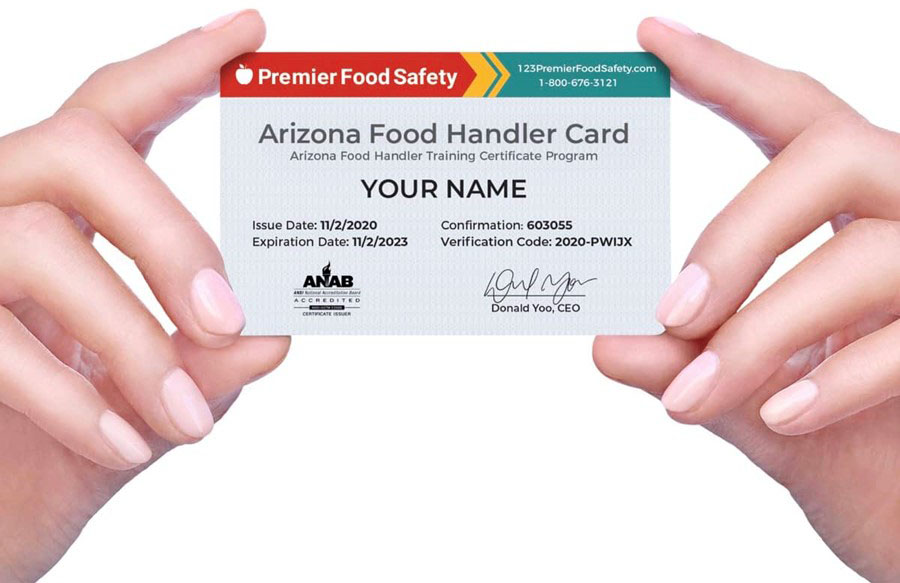360 Food Handler takes center stage, offering a holistic approach to food safety that empowers individuals with the knowledge and skills to prevent foodborne illnesses and ensure the well-being of consumers. This comprehensive guide delves into the intricacies of food handler certification, exploring its significance, requirements, training content, and the crucial role of employers and regulatory agencies in maintaining food safety standards.
By providing practical tips, best practices, and insights into enforcement and inspections, 360 Food Handler equips readers with the tools they need to become responsible and proactive food handlers, safeguarding the health of communities and upholding the integrity of the food industry.
Food Handler Certification Overview: 360 Food Handler

Food handler certification is a vital step in ensuring the safety of food and preventing foodborne illnesses. It provides individuals working in the food industry with the knowledge and skills necessary to handle, prepare, and serve food safely, thereby minimizing the risk of food contamination and ensuring the well-being of consumers.
Prevalence of Foodborne Illnesses
Foodborne illnesses are a significant public health concern, affecting millions of people worldwide each year. According to the Centers for Disease Control and Prevention (CDC), approximately 48 million people in the United States get sick from foodborne illnesses annually, resulting in an estimated 128,000 hospitalizations and 3,000 deaths.
Role of Food Handlers in Preventing Foodborne Illnesses
Food handlers play a crucial role in preventing foodborne illnesses. They are responsible for ensuring that food is handled and prepared in a safe and sanitary manner, reducing the risk of contamination and the spread of pathogens. By adhering to proper food safety practices, food handlers can help prevent foodborne illnesses and protect the health of consumers.
Requirements and Eligibility

To obtain a food handler certification, individuals must meet specific requirements related to age, training, and health screening. These requirements vary across jurisdictions, but generally, the following criteria are common:
Age Requirement
Individuals must be of legal working age to obtain a food handler certification. This age varies depending on the jurisdiction, but it is typically set at 16 or 18 years old.
Training Requirement
Food handler training is essential for obtaining certification. This training typically covers topics such as food safety practices, foodborne illnesses, personal hygiene, and sanitation. The training may be offered through online courses, in-person classes, or a combination of both.
Health Screening Requirement
Some jurisdictions may require food handlers to undergo a health screening before obtaining certification. This screening may include a physical examination and/or a blood test to check for any communicable diseases that could pose a risk to food safety.
Exemptions and Special Considerations
There may be exemptions or special considerations for individuals with disabilities or language barriers. For example, individuals with disabilities may be allowed to complete an alternative training program that accommodates their needs. Similarly, individuals who do not speak the primary language of instruction may be provided with translation services during training.
Training Content
Food handler training programs delve into essential topics crucial for ensuring food safety and preventing foodborne illnesses. These programs cover a comprehensive range of subjects, including:
The importance of hands-on training and practical demonstrations cannot be overstated. These elements allow participants to apply their knowledge in real-world scenarios, reinforcing their understanding of food safety principles and promoting proper food handling practices.
Foodborne Illness Prevention
Training emphasizes the significance of understanding the causes and symptoms of foodborne illnesses. Participants learn about different types of bacteria, viruses, and parasites that can contaminate food, as well as the conditions that foster their growth.
Personal Hygiene and Sanitation, 360 food handler
Proper personal hygiene is essential in preventing the spread of bacteria. Training covers topics such as handwashing techniques, proper use of gloves, and maintaining clean uniforms.
Food Safety Regulations
Participants gain an understanding of relevant food safety regulations and standards. This includes knowledge of local, state, and federal regulations, as well as industry best practices.
Cross-Contamination Avoidance
Cross-contamination occurs when harmful bacteria or allergens are transferred from one food item to another. Training focuses on identifying potential cross-contamination risks and implementing measures to prevent them, such as proper food storage, preparation, and handling techniques.
Certification Process

Obtaining a food handler certification involves a straightforward process that ensures individuals possess the necessary knowledge and skills to handle food safely.
The certification process typically consists of the following steps:
Training Completion
Aspiring food handlers must complete a comprehensive training program that covers essential food safety principles, including proper food handling techniques, personal hygiene practices, and foodborne illness prevention.
Examination (if applicable)
In some jurisdictions, candidates may be required to pass an examination to demonstrate their understanding of food safety concepts. The examination typically consists of multiple-choice questions that assess knowledge of food safety regulations, best practices, and potential hazards.
Issuance of the Certificate
Upon successful completion of the training program and examination (if applicable), individuals will be issued a food handler certificate. The certificate serves as evidence of their knowledge and compliance with food safety standards.
Validity Period and Renewal Requirements
The validity period of a food handler certification varies depending on local regulations. Typically, certifications remain valid for a period of one to two years. To maintain certification, individuals must complete refresher training courses or pass re-examination tests as required by the issuing authority.
Commonly Asked Questions
What is the purpose of food handler certification?
Food handler certification ensures that individuals working in food-related establishments possess the knowledge and skills necessary to prevent foodborne illnesses and maintain food safety standards.
What are the key topics covered in food handler training programs?
Food handler training programs typically cover topics such as foodborne illness prevention, personal hygiene and sanitation, food safety regulations, and cross-contamination avoidance.
What are the responsibilities of employers in ensuring food handler certification and compliance?
Employers are responsible for ensuring that their food handlers are certified and compliant with food safety regulations. This includes providing training, monitoring compliance, and taking disciplinary action when necessary.
